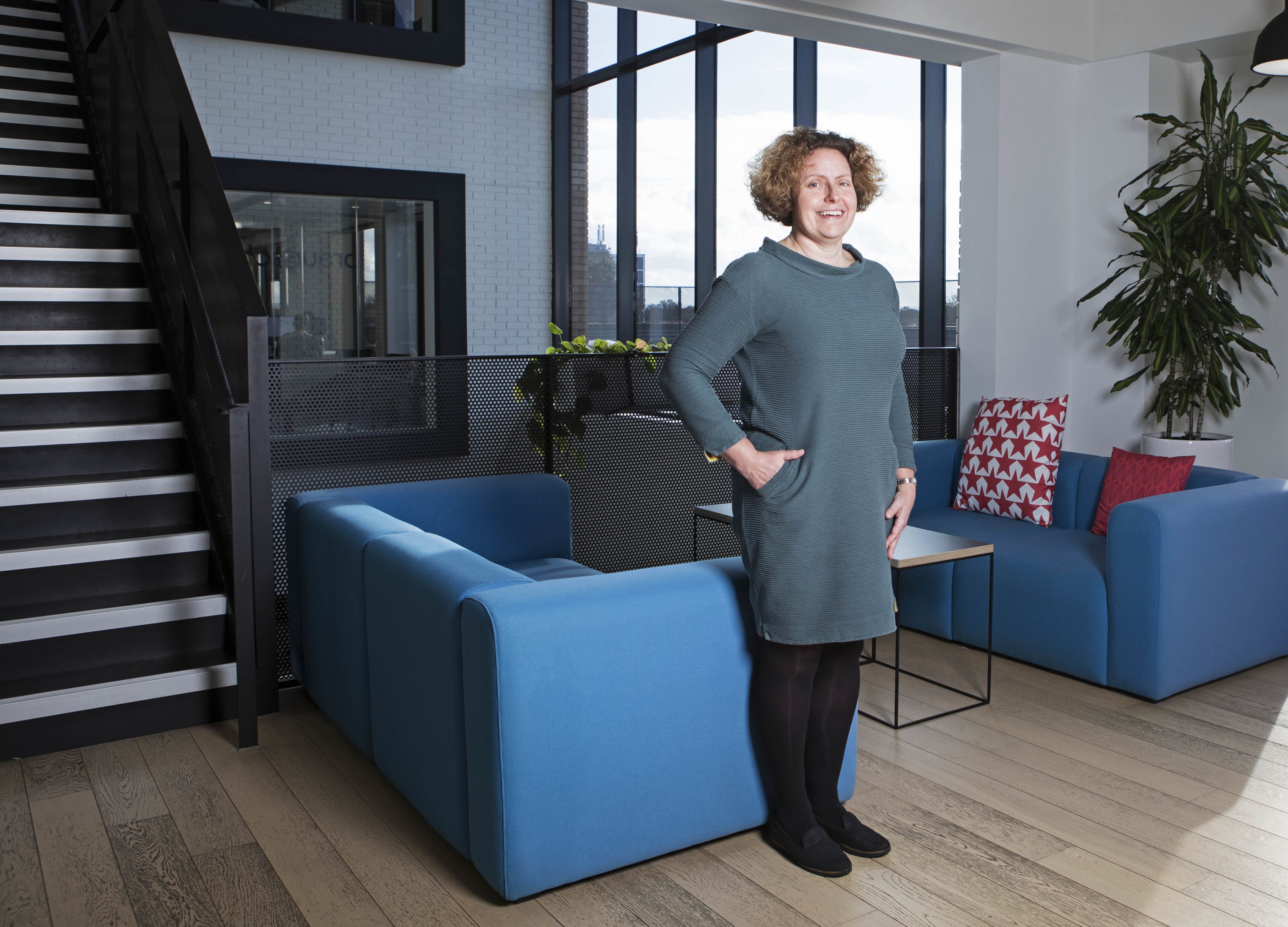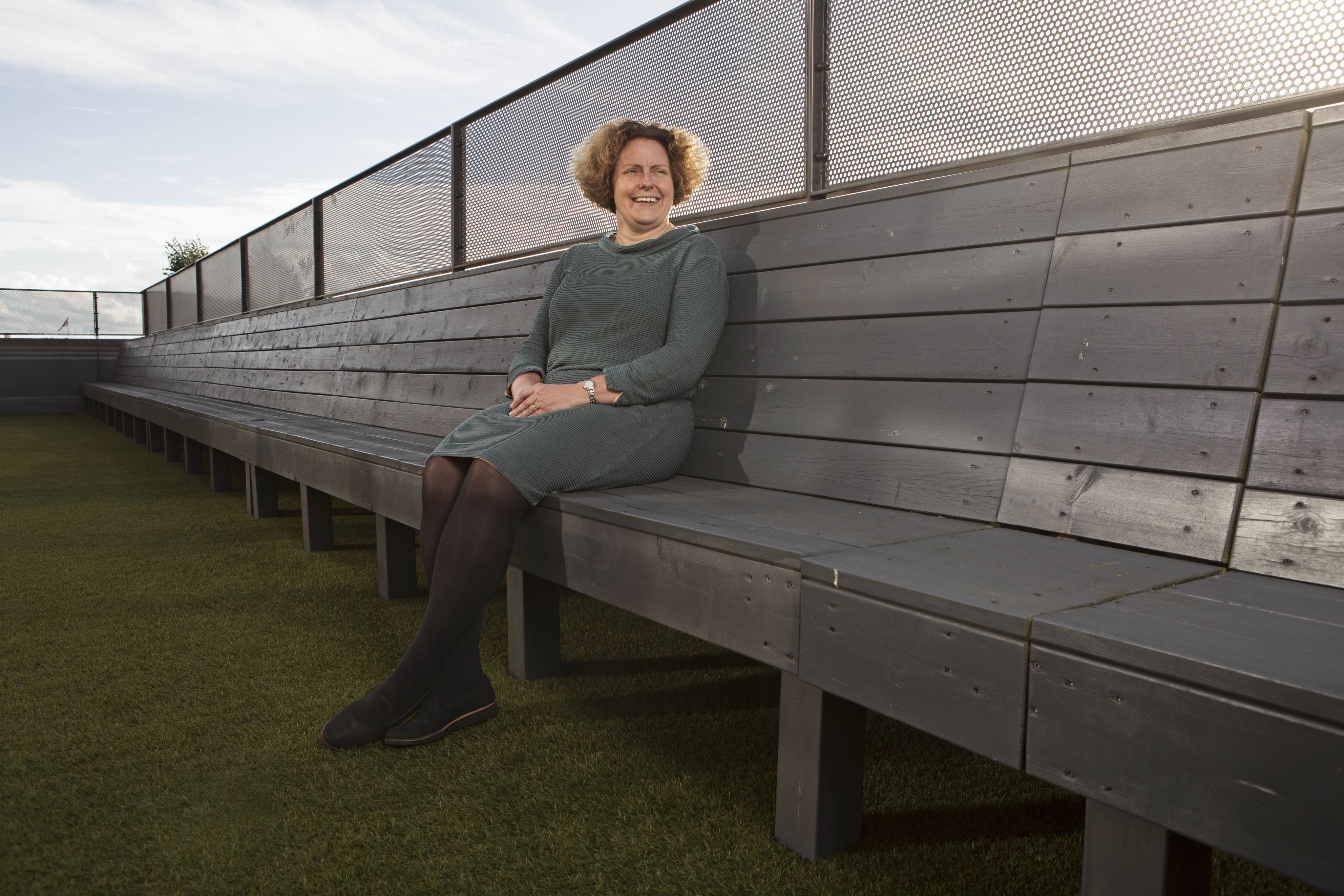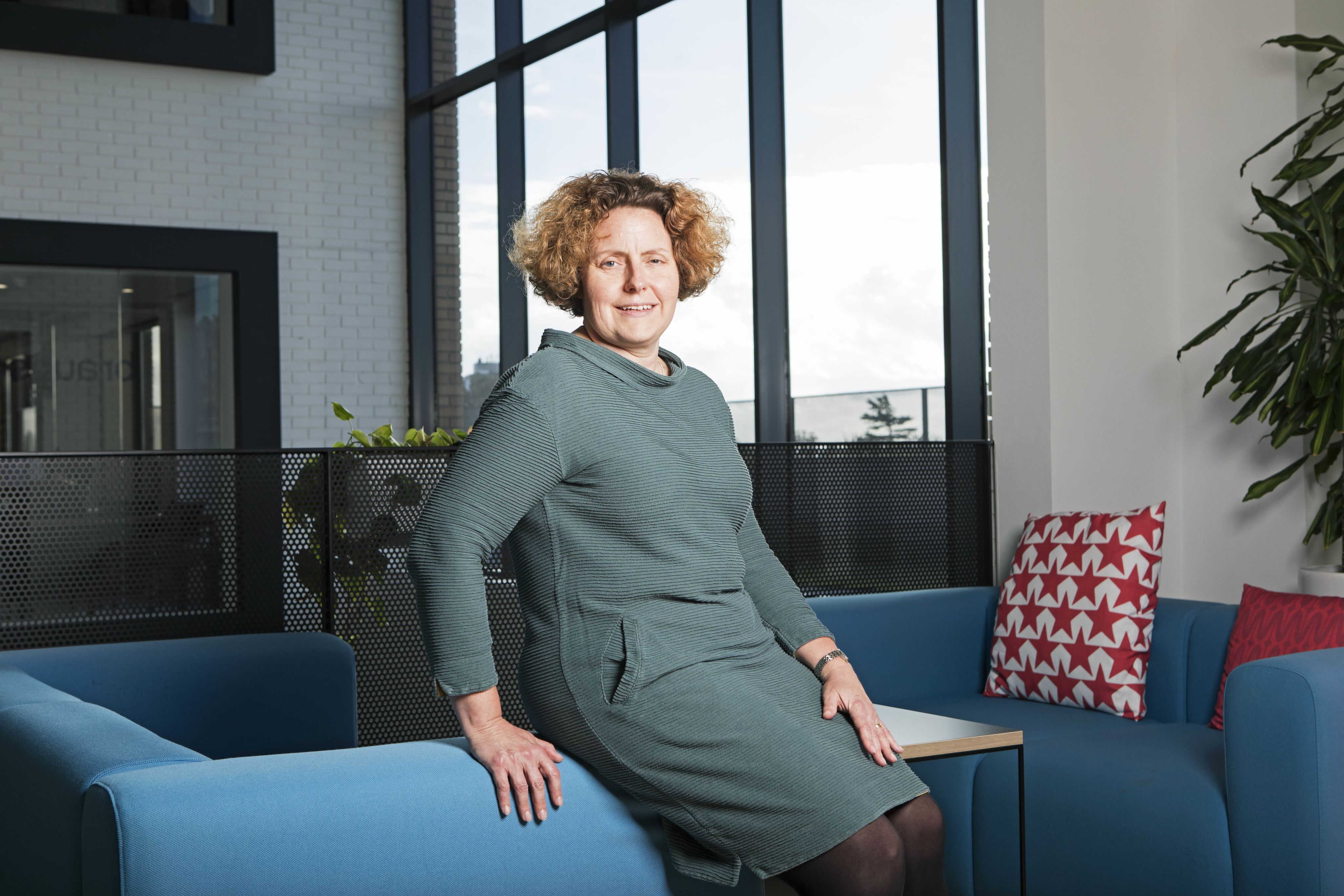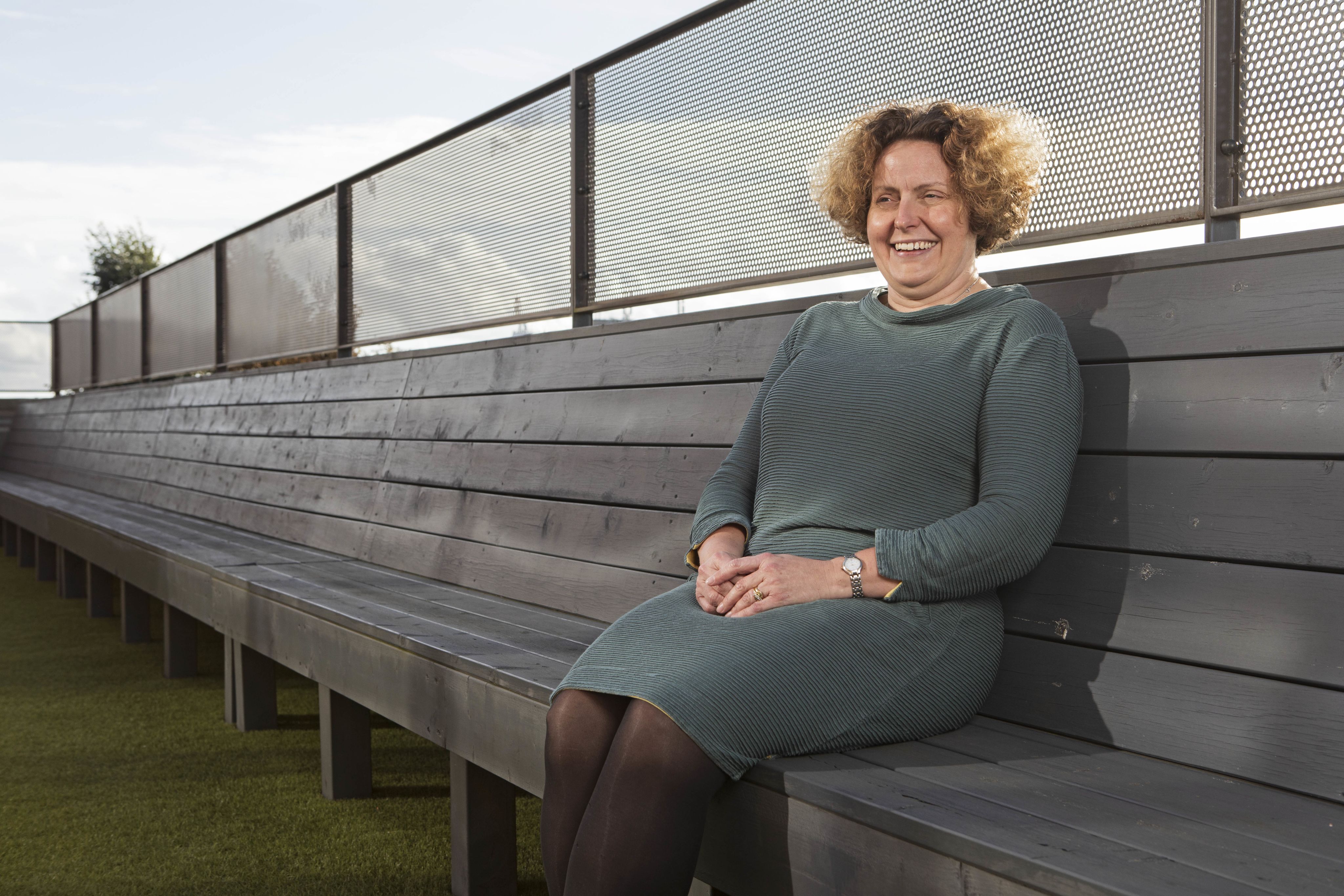Profile: Ruth Strudwick
People first


Profile: Ruth Strudwick
People first
Ruth Strudwick is a professor, radiographer, a journal editor, chair of multiple boards, and a researcher. Synergy sat down with her to find out how she balances her competing radiography passions
How can radiographers best care for their patients? That key question is at the heart of Ruth Strudwick’s career.
Professor Strudwick wears a variety of hats: she is a professor of diagnostic radiography and head of allied health professions at the University of Suffolk, she also manages the physiotherapy course at the university, she works with the Society and College of Radiographers chairing a number of panels, she is the editor of SoR’s Imaging & Oncology publication, and is an academic researcher herself.
What each of these roles boils down to is the improvement of the radiography profession for all - both radiographer and patient.
Synergy met Professor Strudwick to hear about her pathway into the profession, the most significant of her own research findings, and the future of radiography.
Technology and people
“First of all, I wanted to do something where I was working with people,” she said, on her reasons for wanting to become a radiographer. “I love just listening to people’s stories, and their experiences. Making a difference to someone, but also the cutting edge between technology and people.”
Professor Strudwick knew she wanted to be a radiographer from a surprisingly young age. After breaking her wrist age 12, she found herself fascinated by the technology behind X-rays, which then resulted in her taking part in a week-long work experience programme in a hospital, which set her on the path towards studying radiography in Ipswich, where she still lives and works today.
She started her career as a diagnostic radiographer working in general radiography: “I really enjoyed being a diagnostic radiographer and I didn’t want to specialise in anything really. I enjoyed the variety, working in the emergency department, loved going to theatre, really enjoyed working with different healthcare professionals, the whole multidisciplinary team, and was happy doing that for a couple of years.
“And then I felt like I wasn’t challenging myself enough intellectually.”
She began to branch out, resulting in her starting a self-funded Master’s degree with the Open University. During her study, Professor Strudwick found she had an aptitude for teaching students, which resulted in her taking up a role as a clinical lecturer in 2001, and then as a lecturer in 2003.
While working as a lecturer, one of Professor Strudwick’s managers encouraged her to do her doctorate because “it’s going to be the currency,” which she duly completed, and then worked her way up at the University of Suffolk until she was promoted to professor in July this year.
Major challenges
With her experience both as a clinical radiographer and now as an educator, she has a clear view of the challenges facing the radiography profession. From attracting new radiographers, to the challenging working conditions in the NHS, there is plenty that can be improved on, but what are the biggest challenges in Professor Strudwick’s opinion?
“Getting people to know what the profession is about, first of all,” she said, “so that we can get people in. Also the financial pressures. I know the government has been looking at some things around this, but we’ve still got students paying fees and taking loans. If I was in charge I think I’d just scrap that, or at least offer some kind of incentive.
“For mature students at the moment, during a financial crisis, they’re probably thinking twice about their finances. And technology is always changing, so keeping up to date with all of that. It’s quite challenging in education to be making sure you’re teaching the most up to date information.”
Watch Ruth opening the new imaging suite at the University of Suffolk
To help stay up to speed with current practices, Professor Strudwick still works bank shifts during holidays, but also spends time investigating how radiographers work through her own research.
Ethnographic research, Professor Strudwick’s specialism, is a qualitative research methodology that involves collecting data through observations, interviews, and focus groups.
For her doctoral research, she undertook an ethnographic study of the professional culture of diagnostic radiographers, spending time observing radiographers in one department and interviewing them, to really find out what it’s like to be a radiographer. Her findings were later published as a book - The Ethnographic Radiographer, published in 2021.
Best practice
But what are the most important takeaways for radiographers from Professor Strudwick’s research? In short, the details matter. “I think really small things make a difference,” she said. “Smiling, saying ‘hello, my name is…’, and really being interested in the patient.”
“My work around values-based practice, which is really an aspect of person-centred care, tells us that if we find out what’s important to our patient, then they will work with us.”
For example, asking a patient who is in a wheelchair the best way of getting them onto the bed, rather than assuming they need help, can make the patient feel valued and speed up the process simultaneously.
“Don’t make assumptions,” she said. “If a patient remembers you, it’s usually because the last time they saw you they had a good experience. Taking that little bit of extra time at the start of an interaction will save you time in the long run, because people understand what it is you want them to do.”
Getting involved
Professor Strudwick’s passion for research has also seen her take up editorship of Imaging & Oncology, a publication of the Society of Radiographers that explores innovation and provocative topics within the profession. The 2024 edition is currently in the works and will include some fascinating pieces around patient experience, the new education and career framework, and apprenticeships.
Professor Strudwick’s experience in academia has also seen her take on a role with the College of Radiographers Industry Partnership Scheme (CoRIPS), as chair of the main funding panel. CoRIPS funds projects related to any aspect of the science and practice of radiography, providing funding of up to £5,000 for small projects and £10,000 for one larger project, supported by a host of partners.
She encourages radiographers to get involved in research themselves: “The research side of our profession is growing, there’s no doubt about that. Don’t be scared about writing about the things that you’re doing and some of the innovative things that make a difference to people.
“You might be surprised that academic staff based in a university would love to work with clinical radiographers and do research together. They might be able to help you with the writing, and you can help them with the clinical experience. It’s a really good partnership. I’d encourage people to think about that and not be scared about writing.”
Ruth is also organiser of the Achieving Excellence in Radiography Education and Research conference, which takes place from Thursday, 23 November to Friday, 24 November 2023, at the University of Suffolk in Ipswich.
The event, organised in collaboration with the College of Radiographers aims to help improve the experiences of students and training radiographers. It will feature a host of expert speakers, as well as various workshops and networking opportunities. Find out more about the event here.
Cause for optimism
Looking ahead to the future of radiography, Professor Strudwick also has some insights into the positive developments in the profession.
Work in person-centred care is particularly a cause for optimism, along with the continued development of technology to help improve outcomes for patients. “Person-centred care is really coming to the fore,” she said.
“It’s becoming much more prominent within radiography and radiographers are starting to understand that we need to look after patients. And obviously the technology side of things is constantly developing - AI is amazing in how accurate it can be in diagnosis which is brilliant.”
She added: “For me, I’m still doing the job I love. And what I’ve really liked to see is my team now growing. New people have been coming into education for the first time and teaching, and growing in their profession as well. I think that’s great.”
Find out more...
Ruth Strudwick is professor of diagnostic radiography at the School of Allied Health Sciences, University of Suffolk, where she is also head of allied health professions.
A diagnostic radiographer by background, she is also editor of Imaging & Oncology, and sits on multiple panels for the Society of Radiographers.
Ruth’s book, The Ethnographic Radiographer, was published in 2021 by Palgrave MacMillan. She has also co-edited a book on person-centred care in radiography, available here.
Find out more about CoRIPS research grants and industry partnerships.
Photography: Richard Cannon




